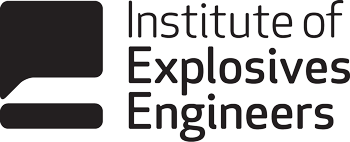Code of Conduct
The Institute expects that all members will work to enhance the wellbeing of society. In doing so members are required to maintain and promote high ethical standards and challenge unethical behaviour. Members are expected to comply with the four fundamental principles for ethical behaviour and decision-making detailed in the Statement of Ethical Principles published by the Engineering Council and The Royal Academy of Engineering (revised 2017). Those principles are honest and integrity, respect for life, law, the environment and public good, accuracy and rigour, leadership and communication,:
The Institute of Explosives Engineers expects all members to uphold the highest standards of professional conduct including openness, fairness, honesty and integrity. They should:
- act in a reliable and trustworthy manner
- be alert to the ways in which their work and behaviour might affect others and respect the privacy, rights and reputations of other parties and individuals
- respect confidentiality
- declare conflicts of interest
- avoid deception and take steps to prevent or report corrupt practices or professional misconduct
- reject bribery and improper influence
In particular The Institute of Explosives Engineers expects all Members to act with impartiality, responsibility, truthfulness, at all times in their professional and business activities. Members should:
- not allow themselves to be improperly influenced either by their own, or others, self-interest.
- not be a party to any statement that they know to be untrue, misleading, unfair to others or contrary to their own professional knowledge.
- avoid conflicts of interest. If a conflict arises, they should declare it to those parties affected and either remove its cause or withdraw from that situation.
- respect confidentiality and the privacy of others. They should discharge their professional responsibilities with integrity, particularly with regard to safeguarding information and materials of value to criminals and others less well intentioned than the member.
- Members should not offer or take any illegal payment in connection with their professional work
Principle 2 – Respect for life, law, the environment and public good
The Institute of Explosives Engineers expects all members to obey all applicable laws and regulations and give due weight to facts, published standards and guidance and the wider public interest. They should:
- hold paramount the health and safety of others and draw attention to hazards
- ensure their work is lawful and justified
- recognise the importance of physical and cyber security and data protection
- respect and protect personal information and intellectual property
- protect, and where possible improve, the quality of built and natural environments
- maximise the public good and minimise both actual and potential adverse effects for their own and succeeding generations
- take due account of the limited availability of natural resources
- uphold the reputation and standing of the profession
Principle 3 – Accuracy and Rigour
The Institute of Explosives Engineers expects all members to:
- always act with care
- perform services only in areas in which they are currently competent or under competent supervision
- keep their knowledge and skills up to date
- assist the development of engineering knowledge and skills in others
- present and review theory, evidence and interpretation honestly, accurately, objectively and without bias, while respecting reasoned alternative views
- identify, evaluate, quantify, mitigate and manage risks
- not knowingly mislead or allow others to be misled
In particular The Institute of Explosives Engineers expects:
- Members to apply high standards of skill, knowledge and care in all their work, and to fufill their duty to acquire and use wisely the understanding, knowledge and skills needed to perform their role. They must also apply their informed and impartial judgment in reaching any decisions, which may require members having to balance differing and sometimes opposing demands (for example, the stakeholders’ interests with the community’s and the project’s capital costs with its overall performance).
- Members to realistically appraise their ability to undertake and achieve any proposed work. They should also make their clients aware of the likelihood of achieving the client’s requirements and aspirations. If members feel they are unable to comply with this, they should not quote for, or accept, the work.
- Members to ensure that their terms of appointment, the scope of their work and the essential project requirements are clear and recorded in writing. They should explain to their clients the implications of any conditions of engagement and how their fees are to be calculated and charged. Members should maintain appropriate records throughout their engagement.
- Members should keep their clients informed of the progress of a project and of the key decisions made on the client’s behalf.
- Members are expected to use their best endeavours to meet the client’s agreed time, cost, and quality requirements for the project.
Principle 3 – Leadership and Communication
The Institute of Explosives Engineers expects all members to abide by and promote high standards of leadership and communication. They should:
- be aware of the issues that engineering and technology raise for society, and listen to the aspirations and concerns of others
- promote equality, diversity and inclusion
- promote public awareness and understanding of the impact and benefits of engineering achievements
- be objective and truthful in any statement made in their professional capacity
- challenge statements or policies that cause them professional concern
In particular The Institute of Explosives Engineers expects:
- Members to respect the beliefs and opinions of other people, recognise social diversity, and treat everyone fairly. They should also have a proper concern and due regard for the effect that their work may have on its users and the local community.
- Members to be aware of, and when reasonably practicable minimise risk to their colleagues, employees, and others not in their employment as well the environmental impact of their work.
- Members are expected to comply with good employment practice in their capacity as an employer or an employee.
- Where members are engaged in any form of competition to win work or awards, they should act fairly and honestly with potential clients and competitors. Any competition process in which they are participating must be known to be reasonable, transparent and impartial. If members find this not to be the case, they should endeavour to rectify the competition process or withdraw.
- Members are expected to have in place (or have access to) effective procedures for dealing promptly and appropriately with disputes or complaints.
The Institute will publish on its website the principles which, together with the provisions of the following paragraph, will constitute the Code of Conduct for members.
In addition to complying with the four fundamental principles for ethical behaviour and decision-making detailed in the Statement of Ethical Principles published by the Engineering Council and The Royal Academy of Engineering (revised 2017) members are expected to:
- Contribute to building a sustainable society, present and future
- Apply professional and responsible judgment and take a leadership role.
- Do more than just comply with legislation and codes
- Use resources efficiently and effectively.
- Seek multiple views to solve sustainability challenges.
- Uphold the reputation and standing of the Institute.
- Observe the provisions of the Institute’s governing documents and supporting rules and regulations
- Accept appropriate responsibility for work carried out under their supervision.
- Assess relevant liability, and if appropriate hold professional indemnity insurance.
- Support colleagues or any other person to whom there is a duty of care who in good faith raises any concern about a danger, risk, malpractice or wrongdoing which affects others
Members have a duty to abide by and promote high standards of leadership and communication. They should:
- Be aware of the issues that engineering, and technology raise for society, and listen to the aspirations and concerns of others
- Promote equality, diversity and inclusion
- Promote public awareness and understanding of the impact and benefits of engineering achievements
- Be objective and truthful in any statement made in their professional capacity
- Challenge statements or policies that cause them professional concern
All members of the Institute must:
- Conduct themselves in a manner that does not bring the Institute into disrepute.
- Abide by the Constitution, procedures, and decisions of the Institute.
- Comply with the Institute’s Code of Conduct.
- Notify the Institute if they have received a criminal conviction, or an adverse civil court judgement, related to any aspect of the Institute’s Code of Professional Conduct (whether UK or
- overseas).
- Notify the Institute if declared bankrupt or disqualified as a Company Director or Charity Trustee.
- Notify the Institute of any membership of another professional body with is terminated as a result of a disciplinary procedure.
The documents listed above are available to view and download via the IExpE’s website.
Failure to act in accordance with the above may render the member liable to consideration of disciplinary action.



